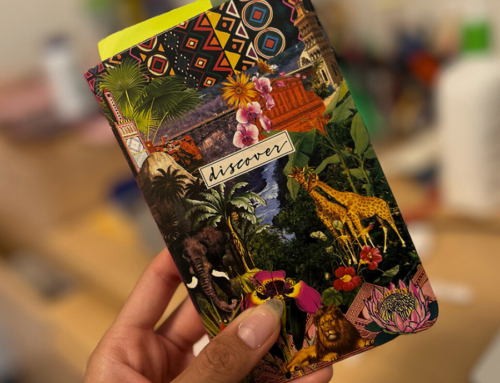Story highlights:
- Reverse culture shock can be as disorienting as the culture shock you experience when arriving in a new place.
- Incorporate favorite parts of your life abroad into your everyday routine at home and stay connected to your friends abroad.
- Reintroduce yourself to your hometown culture—revisit historical sites, find insider spots to go, and enjoy traditional or seasonal celebrations.
- Check out UCEAP’s Navigating Reentry course to help you leverage your study abroad experience.
You probably knew you’d experience culture shock when you started out to study abroad, but you might be surprised to encounter a similar experience when you get home. Turns out reverse culture shock can be just as confusing and uncomfortable when you return as culture shock was when you arrive in your host country.
When you return to a place that you expect to feel like home but is unfamiliar at first, you may feel disoriented, a bit dissociated, and even isolated. Reverse culture shock is far more subtle and, therefore, more difficult to recognize precisely because it is unexpected and unanticipated.
Here are some instances you may experience as you readjust to life at home after study abroad.
You’ve Changed, but Home Hasn’t
Home is more than just a place you live—it involves relationships, routines, predictability—and it’s where you can be yourself. Study abroad is a learning experience that inspires you to evolve, to adopt new cultural practices, and as you do so your perception of home shifts.
I’ve been home for about two weeks and it’s definitely an adjustment. The American way of viewing academics and work life is a lot more stressful. It’s hard to tell myself that this is the lifestyle I’ve come back to.
Isabel Cholbi, UC Berkeley, Spain
You may notice yourself saying things that are critical about your home culture, environment, or routines—things you never noticed or thought about before—and those familiar with you may be surprised. Just like when you were abroad, you’re going to have revelations about things you used to take for granted when you return home.
Here’s what you can do about it:
- Try to remember that what you are feeling is normal.
- Be patient with yourself—it’s OK to be positive and negative about an experience.
- Give yourself permission to recognize, absorb, and really think about your feelings.
You feel like you’re moving backward
Any place you adapt to becomes “home”. You became familiar with the routines and customs of your new culture and “back home” became more distant. When you return home, you have to relearn routines and patterns you forgot, and it can feel like stepping backward in time.
Here’s what you can do about it:
- Try to avoid comparing everything at home to the places you traveled.
- Give yourself time to adjust to being home before analyzing the differences.
- Recognize those moments when the development you experienced shines through.
You feel like you don’t fit in anymore
The effects of reverse culture shock and how long they last are different for every person. It can take time to adjust to who you are now. Add to that the stress of restarting your life back home and you may feel tired, cranky, confused, and isolated.
These are all normal feelings. You are not alone in this!
When I become overwhelmed and nostalgic about my time abroad, I notice myself sighing and saying “oi” under my breath. I must have picked up this habit from my host mom in Rio de Janeiro.
Jackie Sotelo, UC Santa Barbara, Brazil
Here’s what you can do about it:
- Find other study abroad returnees to talk to—your campus study abroad office can help.
- Join a student group where you can continue your language, cultural, or personal development.
- See your hometown as a tourist: Start visiting art shows, museums, and historic sites like you did abroad.
You can’t explain it
When you have the chance to answer the question, “What was it like to study abroad?” you may find yourself struggling to explain it. It can be hard to convey your feelings to someone who hasn’t had a similar experience, and that can be frustrating.
It can be difficult to communicate your experience with friends who haven’t studied abroad or had a major international experience. You can talk about cultural differences, and people are generally curious, but in my opinion the only people who will truly understand the way your experience changed you are those who have experienced the same.
Isabel Cholbi, UC Berkeley, Spain
Here’s what you can do about it:
- Share both highlights and in-depth experiences you had to help people understand the full breadth of your experience.
- Share the challenges you faced—talking about them will help you process the experience.
You miss your life abroad
Just like you were homesick when you left, you’ll miss the people, places, and things you grew accustomed to as a student abroad.
I left Spain with a mixture of feelings. On one hand I was happy to see my family and friends back home, and on the other I was sad to say goodbye to the friends I had made.
Arianna Lara Bonilla, UC Irvine, Spain
Here’s what you can do about it:
- Share California life with friends abroad. No one is too far away for a video chat.
- Send something you complained about missing (Flaming Hot Cheetos perhaps?) to your friends abroad.
- Join a student club where you can speak the language or participate in activities you enjoyed while you were abroad.
Your friends are done hearing about it
Your worldview has been indelibly altered by study abroad and it can take time to process everything you learned. Even though your experience was transformative, you may find friends and family tuning out when you want to talk about it with them. This is a very common experience.
Even before going abroad, I promised myself I wouldn’t be one of those students that bored their friends with constantly talking about study abroad. Upon my return, I found it was easier said than done. On one occasion, my roommates rolled their eyes and said the common line, “Jadie, we get it, you studied abroad!”
Jadie O’Connor, UC Santa Barbara, Sweden
Here’s what you can do about it:
- Keep a journal to record your thoughts and feelings when you return.
- Re-create parts of your life abroad, like meals, rituals, and activities, to share with your friends at home.
Bonus: UCEAP offers an online Navigating Reentry course designed to provide a private and pressure-free way to reflect on your time abroad and connect it to what’s most important to you. If you’re curious about how to discuss your experience in personal and professional settings, highlight study abroad in applications, or identify new skills to add to your resume, log into UCEAP learn with your campus credentials and click Reentry to get started.
Here’s what one student said about the course:
This course both inspired me and made me feel a sense of relief through normalizing all the different thoughts and feelings that I had during my study abroad experience.
You want everyone else to study abroad
It’s a common thing: You had an amazing experience and you want everyone to have the same opportunity. Luckily, one of the best ways to recover from reverse culture shock, re-adjust to life at home, and reflect on your experience is by helping others have the same life-changing experience.
Here’s what you can do about it:
- Work or volunteer at your campus study abroad office. Often there are student advisor positions where you can meet with other students and share your insight on study abroad.
- Mentor students coming to study in California. Students coming from other countries are experiencing all the confusing and exciting thoughts and feelings that you had when you arrived abroad. You can help them adjust because you had a similar experience.
And finally, don’t forget the experience
Another way to combat reverse culture shock is to acknowledge the importance of your experience and keep your memories alive.
Technology is a great tool to stay in touch with friends abroad after you return. Plan video chats, engage on social media, and message each other about updates in your life to stay connected. Although it’s not the same as seeing each other in person, it’s still great to keep in touch.
Sheetal Shantharam Shenoy, UC Irvine, UK-England
Here’s what you can do:
- Make videos about your adventures abroad. If you decide to share them, they can help others see themselves in the experience and get excited about doing the same.
- Write about your experience for a website or blog. If maintaining your own site or blog is too much, submit your articles to a study abroad publication like this one.
- Share your experiences on social media. Writing out short episodes can be a creative and helpful way to process the experience over time.
- Use your photos to make a scrapbook and relive the experiences for yourself or with people who ask about it.
Just like the culture shock you experienced when you first went abroad, reverse culture shock has some similarities. Study abroad is a challenging and rewarding experience and it can take time to process everything. Give yourself the time to arrive at the important benefits of this process, like these:
- Your worldview has changed. You see your home community and country with fresh (and sometimes critical) eyes.
- Your perceptions have changed. You have a better understanding of yourself and your biases.
- You’ve matured and it shows. You’re more confident, independent, and self-assured.
- You have new skills and interests. Your experience continues to influence what you want to do in life.












Leave A Comment